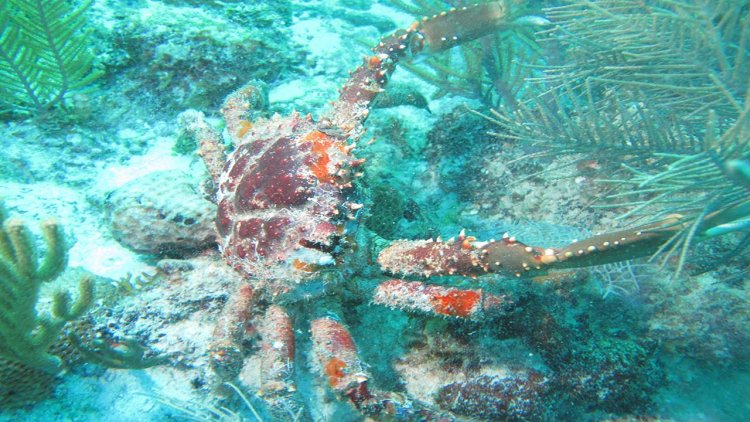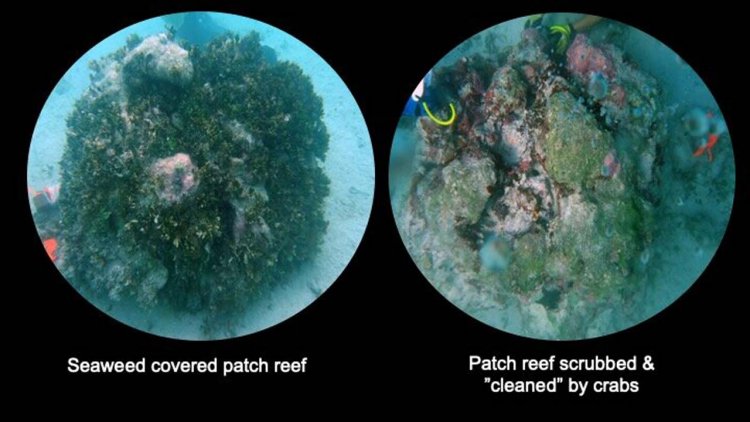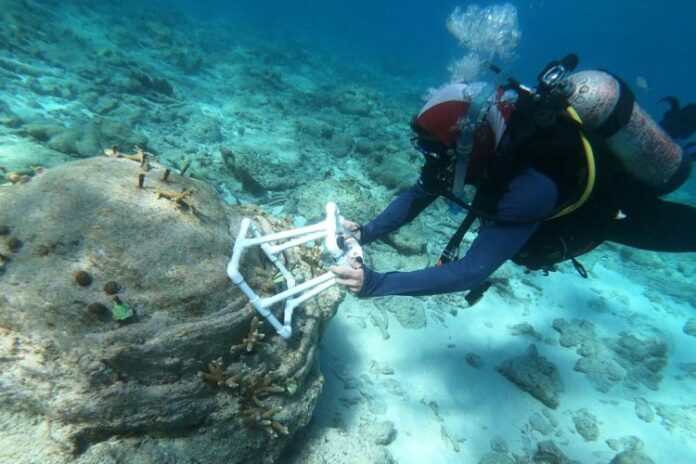Coral reefs are facing a steep decline today for many reasons, including climate change, overfishing, pollution, disease, and more. What’s taking their place is lots and lots of seaweed. But researchers reporting in the journal Current Biology on December 10 now have some encouraging news: native crabs can help to combat the seaweed and restore the reef.
Mark Butler of Florida International University says:
“Experimentally increasing the abundance of large native, herbivorous crabs on coral reefs in the Florida Keys led to rapid declines in seaweed cover and, over the course of a year or so, resulted in the return of small corals and fishes to those reefs. This opens up a whole new avenue for coral reef restoration.”
Butler and colleagues, including study first author Angelo “Jason” Spadaro, have been studying the coral reef and other habitats in the Florida Keys for more than 30 years. Butler’s familiarity with the place helped his team to recognize the under-appreciated role of a little-known, mostly nocturnal Caribbean king crab to coral reef dynamics. This crab eats an impressive amount of seaweed at rates that rival all other Caribbean species of fish and invertebrates. They also eat seaweed that other species avoid.

Photo: Angelo Spadaro
The only trouble? Caribbean king crabs aren’t naturally present in large enough numbers to keep the seaweed under control. But, the researchers wondered, what if it were possible to boost their numbers? Could the crabs restore balance on the reef?
The researchers put the idea to the test for the first time in 2014-2015 within 12 isolated patches of coral reef. The reefs were split into three groups: unmanipulated control reef, reefs stocked with crabs, and reefs on which divers scrubbed the reef to remove seaweed and algae before adding crabs.
At the start, 85% of the reef was covered with seaweed and that didn’t change a year later on the reef they left alone. The addition of crabs put a big dent in the seaweed, dropping it to less than 50% cover. And, in the final treatment in which reefs were scrubbed first, seaweed cover dropped by about 80%; scrubbing the reefs alone also reduced seaweed cover, but the effect was only short-term unless crabs were also introduced.
The repeat experiment showed similarly impressive results. Crabs alone reduced seaweed cover by about 50%. By scrubbing the reef first, seaweed declined by about 70%.
The findings show that herbivorous crabs can be used as another tool for coral reef restoration, augmenting the common approach of transplanting coral fragments onto degraded reefs, according to the researchers. In essence, they say, the crabs improve the habitat conditions for corals and fishes.
Already coral nurseries have been established to help restore the reef, Butler says. To put the new findings into action will require setting up nurseries to raise large numbers of crabs. The researchers report that they are now trying to find the needed resources to do exactly that.

Photo: Angelo Spadaro



